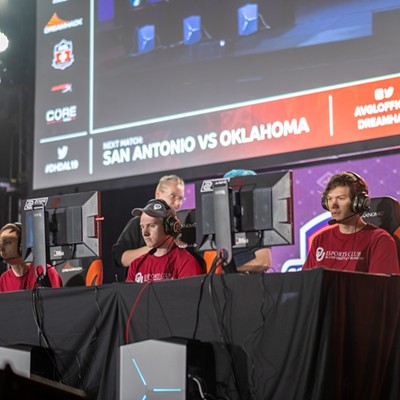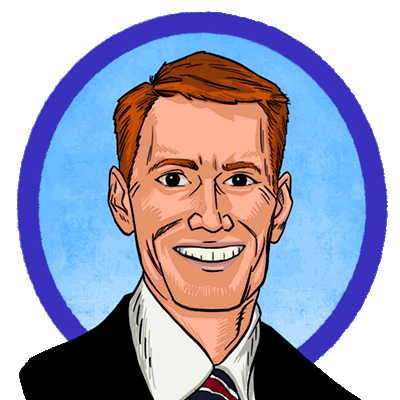
That latter fact might seem incongruous in a state often characterized as the buckle of the Bible Belt. But some experts suggest the large numbers of self-described atheists aren’t so surprising.
“I am a native Oklahoman, and I have found that while Oklahoma is a conservative state with a strong religious presence, it is a state that has a very fierce independent spirit,” said Charles A. Kimball, director of Religious Studies at the University of Oklahoma. “There’s a lot of respect for diversity, and that includes religious diversity, in this state.”
CNN anchor Wolf Blitzer learned about such diversity firsthand while he was covering the aftermath of the Moore tornado. In a live interview, Blitzer asked a Moore resident, Rebecca Vitsmun, if she was thankful to God for surviving the May 20 twister that destroyed her home.
Vitsmun paused briefly. “Actually,” she said, “I’m an atheist.”
The young mother inadvertently became the face of atheism in Oklahoma. She weathered criticism from some quarters, while others hailed her as a hero for her courage.
“I don’t disagree that telling the truth is a brave thing to do, but because I decided long ago to answer a question like that honestly, regardless of who asked, I didn’t walk away from the interview thinking that I had been brave,” Vitsmun said. “I walked away thinking, ‘Well, that went well.’” It thrust her into the spotlight at a time when she and her family needed to focus on putting their lives back together.
“I know there have been negative posts on websites across the Internet — which I have not read — but
those who have contacted me directly have all been incredibly kind,
regardless of their beliefs or nonbeliefs,” Vitsmun said.
Kimball said the interview was an interesting twist in the aftermath of the tornado.
“He
(Blitzer) was assuming because he had heard it all day from others,
that this young woman was going to say she was thankful to God,” said
Kimball, who authored When Religion Becomes Lethal: The Explosive Mix of Politics and Religion in Judaism, Christianity, and Islam.
“I
thought it was brave because the setting is an area with pretty
conservative views. But it is also a sign that it is more and more
acceptable to say no to organized religion.”
The ‘nones’
In
2007, 15 percent of Americans considered themselves “unaffiliated” with
any religion, according to a Pew Research Center survey. By 2012, that
number had jumped to 20 percent.
That figure includes more than 13 million self-described
atheists and agnostics and almost 33 million people who say they have no
particular religious affiliation, according to the study.
The
Pew Research Center cites “generational replacement, the gradual
supplanting of older generations by newer ones,” as one reason the
number of “nones” is growing. Nones is the term used for people who are
not affiliated with any single religious group.
Almost
32 percent of the millennial generation (ages 18-29) is unaffiliated.
But Generation Xers and baby boomers also have drifted from religious
affiliation. In 2012, 21 percent of GenXers and 15 percent of boomers
describe themselves as religiously unaffiliated.
The Pew survey found that 74 percent of unaffiliated adults were raised with some sort of religious affiliation.
Vitsmun is one example. She was raised Catholic but began to question those tenets by the time she was 14.
“I
decided it was impossible for the god that I believed in to condemn
billions of people in Asia, Africa and across the world to eternal
damnation for not knowing who Jesus was,” she said.
“I
decided that all religions were worshiping the same thing as long as
they believed that good was the thing to strive for. When I was 19, I
decided that not understanding where my personal faith led was
unacceptable and began to seek. My path led me to atheism in my early
20s and humanism in my mid-20s.
“I still believe that as long as people believe goodness is the thing they are striving for, then we are on the same page.”
Oklahoma Atheists
Red
McCall, the president of Oklahoma Atheists, said the state has a robust
atheist community, noting his group is the seventh-largest of its kind
in the U.S.

“We continue to grow,” he said.
“Meet-up groups include everything from political discussion to mom groups.”
According to the group’s Facebook site, Oklahoma Atheists has more than 1,000 members.
Like Vitsmun, McCall was also young when he began questioning the religion in which he was raised.
“You do not have to believe in a god to be a good person,” he said.
An
atheist is generally defined as someone who does not believe in a
deity. Kimball cautions against stereotyping atheists. Some believe in a
spiritual force, he said, and others believe in reincarnation. As is
the case with organized religion, there is diversity in atheism.
Hostility
between theists and atheists is not uncommon. After Vitsmun’s
interview, some in the religious community suggested that there had been
a dearth of effort among nonbelievers in the tornado recovery.
Vitsmun
disputes that notion. “I don’t believe there was a difference in the
amount of work put forth,” she said. “Atheists are just beginning to
develop the type of organized systems theists already have in place.”
Despite
a lack of national coordinated relief efforts, said Vitsmun, local
groups such as Oklahoma Atheists and FreeOK stepped in to help her
family and others impacted by the deadly storms. Atheists came from
around all the country to volunteer, she said.

The
difference, Vitsmun said, was best summed up by Kai Tancredi, a FreeOK
member who noted, “It’s not that humanists are absent in the relief
effort; it’s that they aren’t all wearing matching T-shirts.”
Foundation Beyond Belief, a Georgia-based humanist organization, took Tancredi’s observation to heart.
“In
honor of Kai’s quote, they have already developed a ‘Humanism at Work’
T-shirt to give more visibility to atheist volunteers,” said Vitsmun.
Moving forward
Like many others in Oklahoma, Vitsmun and her family — including her baby son — are moving forward.
“Things
were extremely hard for my son until a few of his safety objects were
replaced,” Vitsmun said. “Within the first week, he was starting to feel
better.”
Vitsmun said her husband is doing well, but they are enduring many emotional days.
“I
have been having a hard time with the loss of irreplaceable objects
such as things from my deceased grandfather I planned to pass on to my
son,” she said. “But things are starting to settle, and we are all
getting used to our new normal.”
Vitsmun said she feels like the biggest challenge for her has been prioritizing.
“There
always seems to be at least 10 tornado-related responsibilities that
should have the top spot in my list of things to do, and my motherly
instinct is to forgo all of them and put my son at the top,” she said.
“I look forward to getting to a point in life where this is all behind us.”
- Chicken-Fried News: Praise the who?
- CFN: Atheists, assemble!
- CFN: In __ we trust
- CFN: Say it ain't so, Joe
- Freethinkers across the state will gather Saturday for a unique convention that touts science and reason











